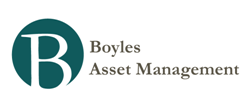All the Right Moves (One of The World’s Great Chess Teachers, On How To Think Like A Champion)
People have been playing chess as we know it since the 15th century. Chess strategies have been analyzed, refined, and reanalyzed. That's why so many players learn one set of principles and then follow those principles mechanically. They begin each game the same way. They respond to a certain attack the same way. They are "playing by the rules" -- but they are also setting themselves up to lose to someone who has rethought those rules.
From the beginning, Bobby Fischer operated at the cutting edge of ideas. He would develop new moves to introduce early in a game, or he would discover and reinvigorate old moves that people had forgotten. I used to see him early in the morning at the Marshall Chess Club, in New York City. The club had a cupboard filled with index cards -- records of games from the 19th century -- and Fischer would be poring over those records. I asked myself, "Why is the world's best player reading about games from 150 years ago?" Sure enough, during the U.S. Championship one year, he played an opening that was inspired by one of those old games. And he didn't just play the same opening -- he put his signature on it. That was one of his great gifts: finding unusual moves and revitalizing them.
- The Endgame Investor
Below are a couple of sections from the Boyles Q4 letter to investors. Most of it is based on an idea originally mentioned on the blog, which is expanded upon below. Disclosure: I am a portfolio manager at Boyles Asset Management, LLC ("Boyles")...
- The Delicate Balance Of Process Vs. Goal...
From Josh Waitzkin in The Art of Learning:Chess was a constant challenge. My whole career, my father and I searched out opponents who were a little stronger than me, so even as I dominated the scholastic circuit, losing was part of my regular...
- Studying The Endgame
I think there's a good analogy to be made between the excerpted paragraphs below, from The Art of Learning, and investing. The opening variations in chess are like short-term results and the time spent looking at everything that looks cheap on...
- Josh Waitzkin @ Google
I was a little slow getting around to watching this, but it was worth the wait. Josh Waitzkin also shared an interesting definition of wisdom from Robert Thurman: "Wisdom is the tolerance of cognitive dissonance." Related to that quote is some advice...
- The Expert Mind
But how do the experts in these various subjects acquire their extraordinary skills? How much can be credited to innate talent and how much to intensive training? Psychologists have sought answers in studies of chess masters. The collected results of...

